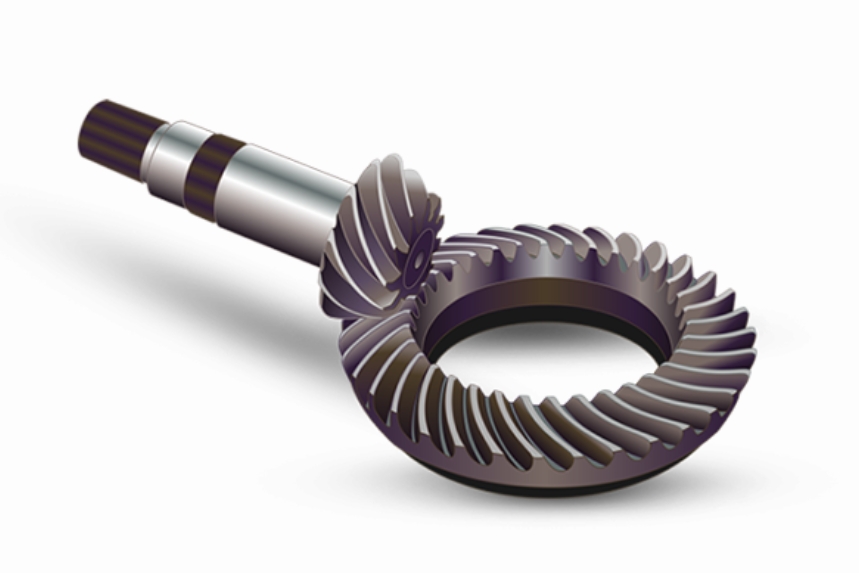
Spiral bevel gear play crucial role in automotive performance, particularly in the transmission and differential systems of vehicles. These gears are designed to handle the angular convergence of the shafts within these systems, ensuring smooth power transmission from the engine to the wheels. Understanding the role of spiral bevel gear helps appreciate how they influence vehicle performance, including handling, durability, and efficiency.
Key Functions and Impact on Automotive Performance:
1. Smooth Power Transmission
- Reduced Noise and Vibration: Spiral bevel gear is known for their smooth and quiet operation. Unlike straight-cut bevel gears, the curved teeth of spiral bevel gear engage more gradually and continuously. This reduces noise and minimizes vibrations, which is essential for enhancing the driving experience and reducing wear on vehicle components.
2. Efficient Power Distribution
- Improved Efficiency: The design of spiral bevel gear allows for better contact between the teeth, which translates to more efficient power transmission with less heat generation and friction compared to other gear types. This efficiency is crucial in the differential where power needs to be effectively distributed to the wheels, especially in turns.
3. Differential and Torque Handling
- Torque Splitting in Differentials: In vehicles, spiral bevel gear is often used in the differential, which is responsible for splitting engine torque and allowing the wheels to rotate at different speeds. This is particularly important for handling and stability when turning, as the inner wheels need to rotate slower than the outer wheels.
- Enhanced Traction and Performance: By efficiently transferring power and accommodating the differences in wheel rotation, spiral bevel gear help improve traction and overall vehicle performance, especially in high-performance or all-wheel-drive vehicles.
4. Durability and Longevity
- Reduced Wear: The gradual engagement of the teeth in spiral bevel gear distributes the load more evenly across the gear teeth. This not only improves efficiency but also significantly reduces wear and tear, thereby enhancing the longevity of the gears and the systems in which they are used.
- Handling High Stress: The robust design of spiral bevel gear makes them capable of handling high stress and torque, which is essential in powerful engines and in vehicles that perform under demanding conditions.
5. Versatility and Customization
- Customizable Designs: Spiral bevel gear can be customized to meet specific performance needs, such as different gear ratios and sizes, which can optimize the performance of a vehicle depending on its specific requirements, like speed versus torque.
- Adaptability: They are suitable for various automotive applications, from passenger vehicles to heavy-duty trucks and off-road vehicles, thanks to their ability to be tailored for different torque demands and setups.
6. Impact on Fuel Economy
- Reduced Friction: The efficient power transfer and reduced friction in systems using spiral bevel gear contribute to better overall fuel economy of the vehicle. This is increasingly important as fuel efficiency standards become stricter worldwide.
Conclusion
Spiral bevel gear is integral to the automotive industry, not only for their role in the transmission and differential systems but also for their impact on the overall performance, efficiency, and durability of vehicles. Their ability to handle high loads with minimal noise and wear makes them indispensable in modern automotive design, particularly in vehicles that require reliable performance under a variety of operating conditions.
